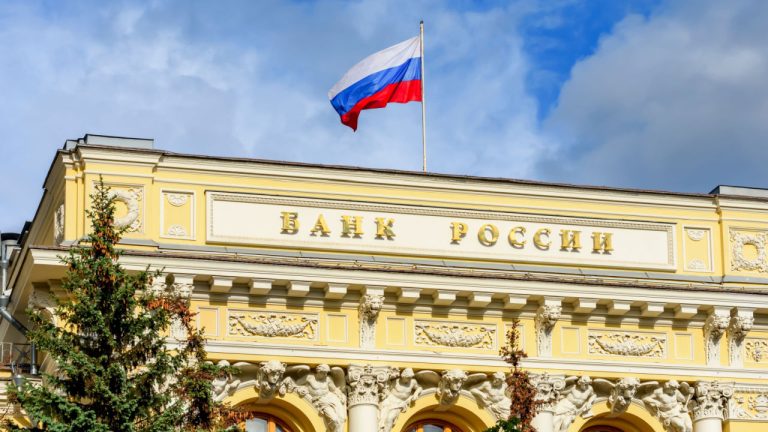
Elvira Nabiullina, governor of the Bank of Russia, has affirmed the bank has stockpiled reserves in assets that are not susceptible to being affected by U.S. sanctions. The official clarified that Russia has built a “safety cushion” in these assets while it continues working on creating new reserves in non-U.S. sanctioned assets.
Russia Built Bank Reserves out of Non-Sanctioned Assets
Russia has managed to create a so-called safety cushion for its economy, based on assets that are not susceptible to being blocked by U.S. sanctions, according to Elvira Nabiullina, governor of the Bank of Russia. According to reports from the Russian news agency TASS, Nabiullina stated that since the country was affected by a wide package of sanctions due to its involvement in the Russia-Ukraine conflict, the bank has focused on piling up this kind of resource.
Nabiullina stated the country could “relax” due to the existence of this reserve, and explained the country would keep stockpiling such assets. She explained:
We are now forming reserves based on what assets cannot be used for sanctions pressure and how our foreign trade is changing.
However, Nabiullina did not specify the nature or the kinds of these “non-sanctionable” assets.
U.S. Sanctions Affecting Russia
The wide package of sanctions that the Russian Federation has faced has changed the configuration of its international trade partners, with the nation leaving European and American imports, and leaning more towards improving its relationship with countries like Iran and India. In fact, Russia is currently finalizing trade agreements with both countries.
The sanctions applied to the Russian Federation include freezing gold and foreign currency reserves abroad, and barring countries and companies from conducting transactions with the Bank of Russia and selected Russian companies and individuals. The first batch of these sanctions was extended recently by U.S. President Joe Biden, reiterating that the activities of the country still pose an “unusual and extraordinary threat” to the security of the U.S.
However, Nabiullina indicated that there is ongoing work to retrieve these frozen assets comprised of U.S. dollars and euros.
The so-called “weaponization” of dollar-centric sanctions has been brought to the spotlight due to the rise of an international de-dollarization movement that seeks to build alternatives around the U.S. currency.
Janet Yellen, U.S. Treasury secretary, recently made reference to effects that the overuse of the sanctions might have on the status of the U.S. dollar, stating: “there is a risk when we use financial sanctions that are linked to the role of the dollar, that over time it could undermine the hegemony of the dollar.”
What do you think about the claimed new composition of the reserves of the Bank of Russia? Tell us in the comments section below.





